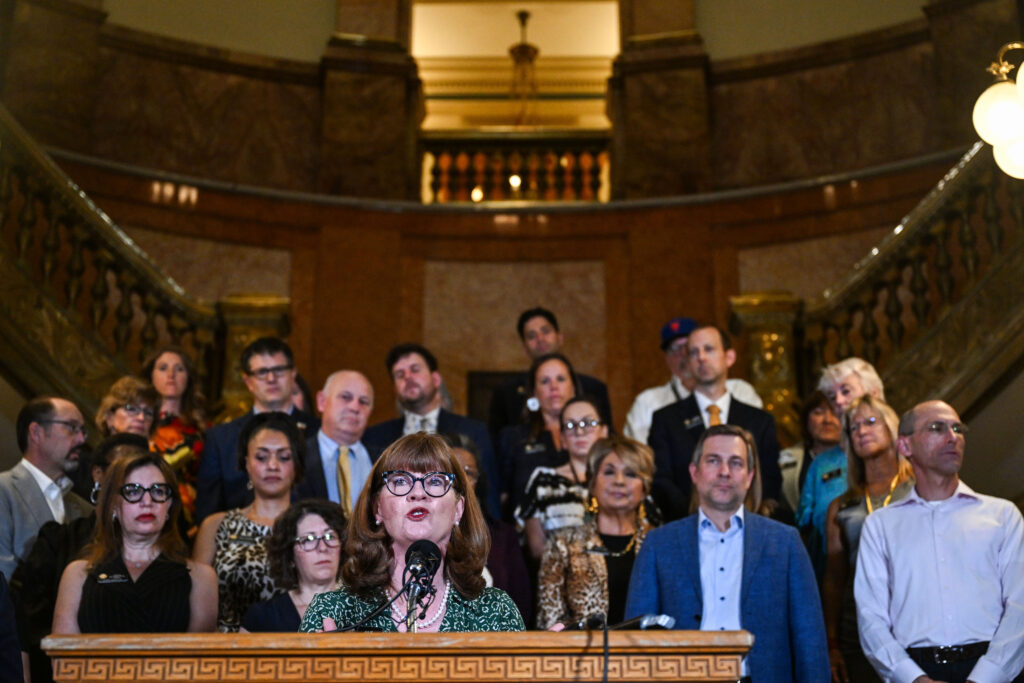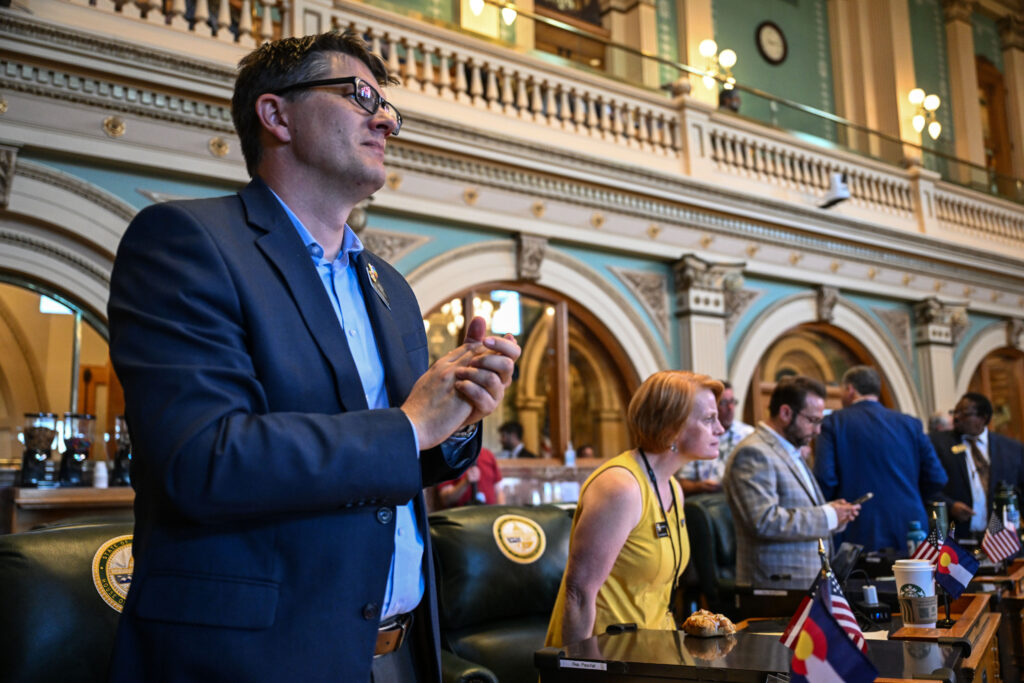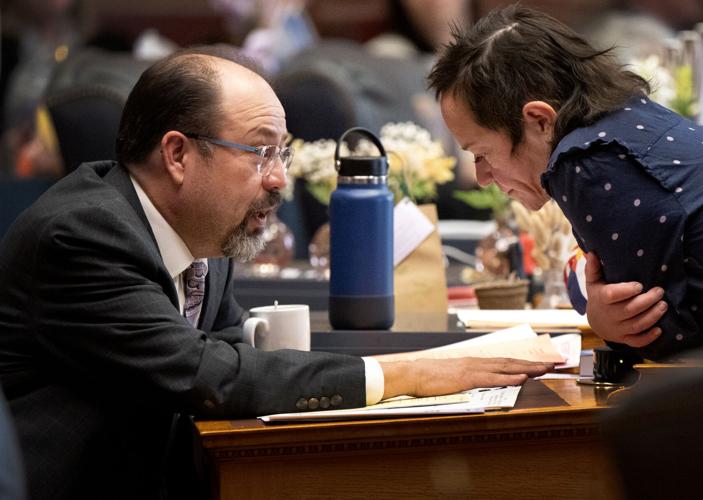Colorado lawmakers target CDOT proposal to charge fees for broadband access
Colorado lawmakers are preparing to push a proposal that seeks to prohibit the Colorado Department of Transportation from charging annual fees for right-of-way access to deploy broadband networks in some of the most remote areas of rural Colorado.
Supporters said the transportation agency’s proposed fee program would make costs so prohibitive that broadband projects would simply not start. State transportation officials maintained that the fee schedule is cheaper compared to neighboring states and that it offers an option to develop high-speed internet throughout the state.
Driving the discussion is Gov. Jared Polis’s executive order, signed two years ago, directing Colorado Broadband Office to work on getting broadband to 99% of Coloradans by 2027.
The easy part has been getting broadband to high-population or even medium-population communities, described as “low-hanging fruit.” Indeed, the state broadband map shows 91.9% of Colorado has high-speed broadband access.
It’s that last 8% or so that’s the most difficult — places largely in rural counties.
In fact, at least six counties, according to the state map, have less than 25% of households and businesses with high-speed broadband access. Hinsdale County, the state’s least-populous county with only 0.71 inhabitants per square mile, sits at 1%. It has one state highway that runs past its county seat, Lake City.

Colorado broadband map, courtesy Colorado Broadband Office.

Colorado broadband map, courtesy Colorado Broadband Office.
The solution for many of these rural counties is high-speed broadband access provided along rights-of-way on state highways.
The Colorado Department of Transportation is levying fees that broadband providers have argued are so high that broadband won’t be affordable for many rural residents.
A 2022 survey by the Colorado Broadband Office, the state office tasked with expanding access, said 38% of those who don’t have broadband services can’t afford it.
As introduced, Senate Bill 91 would still allow the department to impose a permit fee, instead of an annual fee, and sponsors told Colorado Politics they’re planning a rewrite for its committee hearing on Wednesday.
The state transportation agency does not charge this same annual fee to regulated utilities for access to those same rights-of-way, they noted.
Actually, the adoption of an annual fee schedule to charge rural broadband providers 3 cents a foot to access that right-of-way is a recent decision by the transportation agency. And even though the fee sounds low, it will add tens of thousands of dollars every year on broadband projects that last as long as 20 years, making the project too costly for some providers, according to critics of the agency’s decision.
The state’s five-year plan tied to a federal broadband grant program highlights the problem: “One of the primary reasons for limited access in these rural areas is the often unfavorable business case for investment in broadband infrastructure.”
Supporters of SB 91 said that includes the CDOT fees, adding that situations where the cost to set up broadband is higher than the return on investment are illustrated by a map showing almost all those problems exist in rural counties.
Take, for example, the efforts to link rural Kim to Trinidad, both in Las Animas County.
Colorado Counties, Inc. estimated that the cost of those fees to provide broadband along Highway 160 at $10,000 per year.
To connect the towns of Dolores, in Montezuma County, to Rico, in Dolores County, a distance of about 30 miles, would cost almost $6,000 per year for a total of $120,000 over the twenty-year life of the project.
Dolores County has the second lowest broadband access in the state, at 5%.
Those fees would be passed on to consumers and businesses, say backers of SB 91.
The proposal has the support of widely divergent groups, from county and municipal governments, both in rural and not-so-rural Colorado, as well as Colorado Common Cause, chambers of commerce and broadband providers. It has no listed opposition, although the transportation department is fighting to keep those fees as is.
There’s another issue at play here.
The federal government, through the Infrastructure Investment and Jobs Act, is providing Colorado with $826.5 million for broadband access. That could cover the fees, but only for the first three years. Given that these projects are often 20-year efforts, or longer, the fees would then go right back to the consumers and businesses that might not be able to afford it.
The problem is both an economic issue and a question of economies of scale, according to Sen. Byron Pelton, R-Sterling, one of the sponsors of SB 91.
Denver’s population is about 3,922.6 people per square mile. Compare that to Peetz, in Logan County, where the population is about 200 per square mile. Similar broadband fees assessed to Denver residents would be almost negligible, but residents of Peetz will notice the fees, Pelton indicated.
“It’s just another way for CDOT to dip their hands into the till,” Pelton said.
Pelson said rural broadband is not just about being able to access the latest TV show on a livestream service — it is about economic prosperity.
Pelton put it this way: “We’re not getting something for nothing” (as some urban Democratic lawmakers have said). “We’re getting something to help the economy in our communities.”
The transportation agency claims its fee schedule is far cheaper than in neighboring states.
In a December news release, the agency said that, “in scenarios modeled by CDOT staff, the costs for broadband companies to access similar amounts of land for fiber optic lines are less than 1/10th of the cost in Colorado, compared to Arizona and New Mexico, 1/50th of the cost compared to Utah, and less than or equal to costs in Nevada.”
In that same release, Transportation Commission Vice-chair Terry Hart added, “Underserved communities have an urgent need for improved broadband access, and today’s access fee plan offers another option for high-speed internet development throughout Colorado.”
Hart said CDOT’s right of way “offers critical access to many of these communities, and so it is particularly important for this access proposal to move forward and offer these options as soon as possible.”
“The fee structure works to strike a careful balance that reduces private sector costs and preserves assets owned by taxpayers, and we are committed to supporting these objectives so that more Coloradans can access broadband,” Hart added.
Matthew Inzeo of CDOT told Colorado Politics the fees covers some of the agency’s costs, such as paying the salary of the state’s broadband coordinator and to cover the time of utility engineers coordinating relocations of third-party fiber in the right of way on agency projects.












